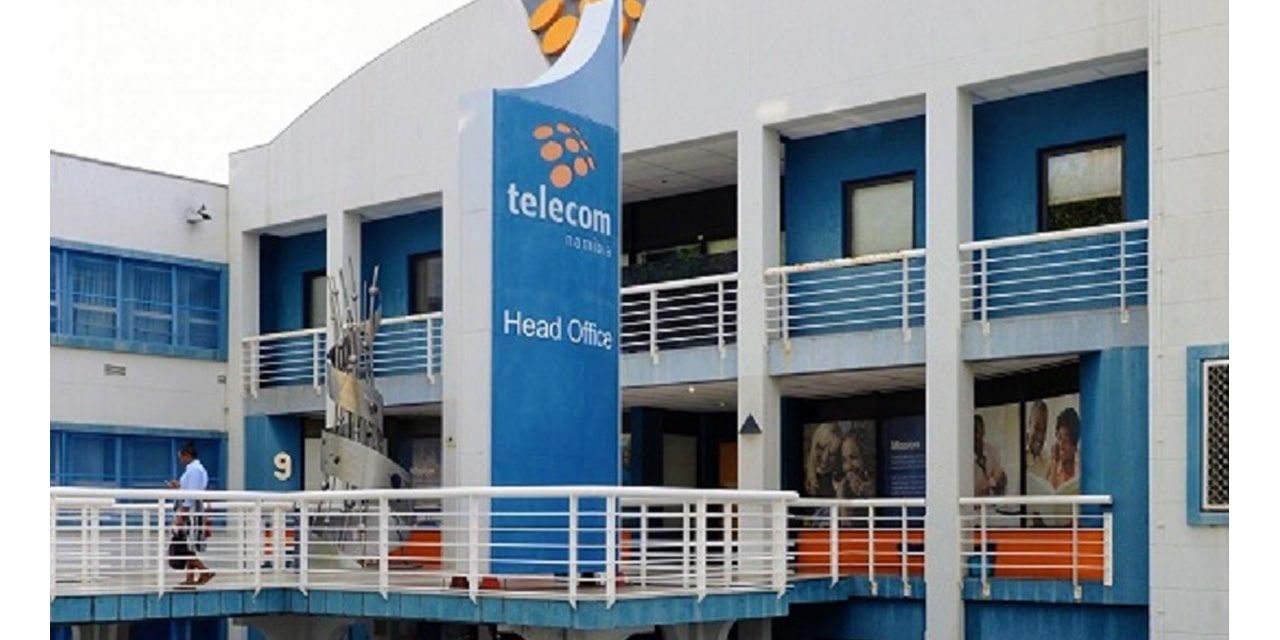Niël Terblanché
Providing access to reliable, speedy and affordable internet services will form a big portion of the new five-year Integrated Strategic Business Plan (ISBP) launched by Telecom Namibia.
The launch on 22 June 2023 of the ISBP signalled the start of Telecom Namibia’s journey to replace obsolete technologies and fast-track its digital transformation initiatives.
The ISBP is aimed at four overall goals: stabilising the business, business transformation, digitalisation, and digital transformation.
The launch coincided with the ceremonial signing of a contract between Telecom Namibia and Sistemas Avanzados De Tecnologia S.A (SATEC), which will kickstart the digital transformation process with the replacement of the Operations Support Systems and Business Support Systems (OSS/BSS) for both fixed and mobile services with a single cloud-native and converged Billing and Customer Relationship Management platform.
Maureen Hinda-Mbuende, Deputy Minister of Finance and Public Enterprises while officiating at the event said that the government plays a dual role in shaping the interactions among key players in the Namibian digital transform ecosystem: first, as policy and rule-maker, to create the enabling environment, and secondly, as a strategic investor in digital technology applications and data, in support of transformation.
“The Namibian government thus remains committed to growing and developing infrastructure, facilitating innovation, and creating frameworks to ensure the realisation of the objectives set out in Vision 2030, NDP5 and soon NDP 6, and the Harambee Prosperity Plan II, which focuses on key strategies and initiatives to transform our digital economy and increase access to ICT related services to all Namibians,” she said.
Telecom Namibia’s business and funding plan is not only informed by government policies but is fundamental in gearing Namibia for the 4th Industrial Revolution.
“Telecom’s plan is aimed at achieving the government development plans insofar as they relate to access to and the use of ICT services and products. Indeed, with this plan Telecom Namibia is turning a new leaf,” she said
Telecom Namibia’s Board Chairperson, Melkizedek Uupindi, said that to achieve digital transformation, the new business plan focuses on raising funds for network modernization and digital transformation initiatives and projects.
Uupindi said that in accordance with the TN ISBP, the company plans to accelerate its investment programs for high-speed broadband and mobile network rollout. The proposed funding of projects will accelerate growth with a potential new revenue growth forecast for the period 2023 to 2027.
“The investments sought will help Telecom Namibia achieve a digital maturity rating with its modern network; improved consumer experience; improved network service quality that will reduce customer churn; investments in the assets that will see an improved return; and improved competitiveness, with an increased market share and improved revenues,” he said.
Telecom Namibia at the same event signed a N$327 million contract with Sistemas Avanzados De Technologia S.A (SATEC) to supply, deliver, install, commission, and maintain Operations and Business Support Systems.
This project will introduce a convergent platform for Telecom Namibia for both fixed and mobile services with integrated, cloud-native products and suites including online charging, billing, revenue management, product management and customer relationship management.
Telecom Namibia will introduce new, innovative products and better ways to interact and serve its customers and improve the quality of service to all its end users.
The billing platform will enable the digitalization of processes and customer touch points aimed at improving customer service and convenience through new features, customer self-service capabilities and timely customer engagement within the digital space and applications.
The initial five-year agreement with SATEC is the basis of TN’s envisaged long-term partnership that will enable it to innovate and collaborate better and in an agile manner with local innovators and other players to extend more benefits and digital-based solutions to the market and end users.
It will also pave the way for next-generation innovations, including the commercial launch of 5G services, the Internet of Things (IoT) and network functions virtualization.
Signing the N$327-million contract on behalf of Telecom Namibia, Dr Stanley Shanapinda, the Chief Executive Officer of Telecom Namibia said: “Building a high-quality network and enhancing customer experience has always been a top priority for Telecom Namibia,” he said.
He added that the company will continue to invest in infrastructure projects and strengthen its network capacity and quality to better serve its customers and the nation at large. The OSS/BSS system will enable Telecom Namibia to automate various offerings and provide quality, reliable and cost-effective high-speed services at a minimal cost to its customers.
“The telecommunications market is witnessing rapid developments, and the requirements and desires of our customers are increasing. Customers know the value and are demanding it. We are committed to giving our customers the best possible telecommunication services through continued investment, innovations, and development. We are delighted to sign this agreement with our partner SATEC,” he said.
He was of the opinion that SATEC’s extensive experience will undoubtedly contribute to enhancing Telecom Namibia’soperational and business model through Operational Efficiency and Customer Experience improvement.




